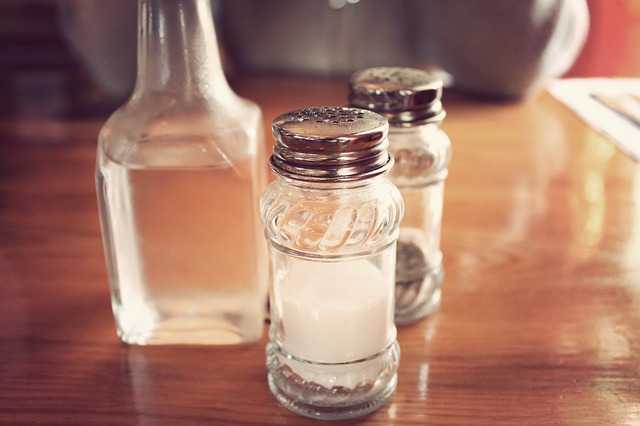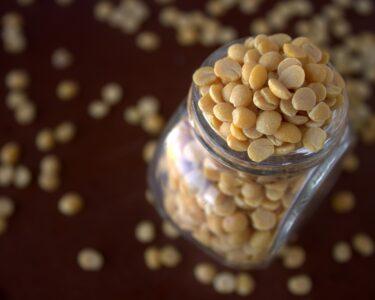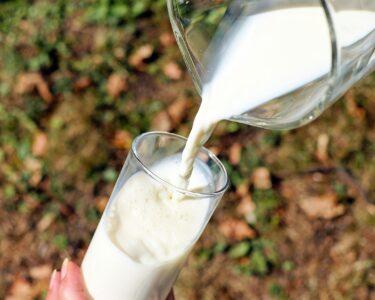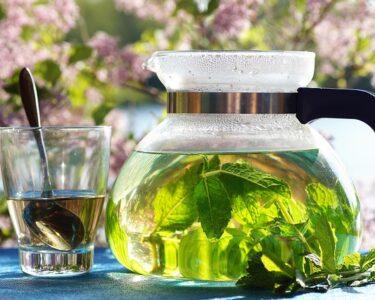Hypertension or high blood pressure is a major public health problem in the world. Moreover, raised blood pressure and/ or hypertension invite other cardiovascular diseases. It contributes to 49% of all coronary heart disease and 62% of all stroke events. Pre-hypertension and hypertension currently affect nearly half of adults globally.In most countries, people are consuming an excess amount of salt than required quantity. The average salt intake of an adult is too high and is between 9 to 12 grams per day. It is evident that higher salt intake is strongly related to the development of hypertension, particularly the rise in blood pressure with age.
Blood pressure is the biggest cause of death in the world through the strokes and heart attacks it causes. Reducing the daily salt intake to not more than 6g (an approximate of 1 teaspoon of salt per day) is effective to reduce the blood pressure. Scientific studies confirm that a modest reduction in salt intake lowers blood pressure in people with hypertension and people with normal blood pressure, in all age groups, and in all ethnic groups. (1) (2)
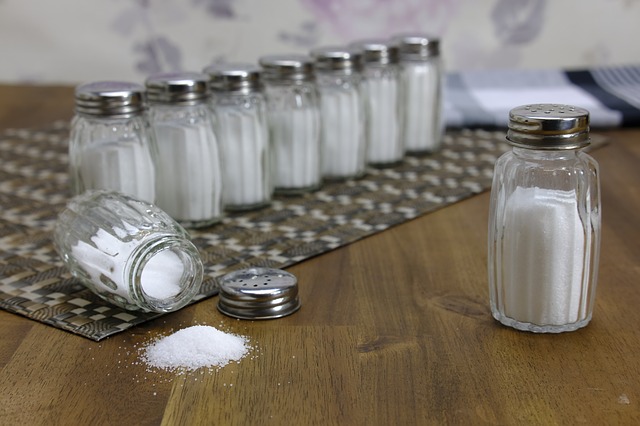
What is the importance of salt in our daily life?
Salt is the most commonly used food additive throughout the world.
The addition of salt
a) Improves thetaste and smell of the raw food or the cooked recipe.
b) It also helps to preserve the food.
c) Increases the shelf life of foods.
d) Salt helps to prevent microbial growth.
Many edible salts are used throughout the world, all of which are mainly composed of two elements, namely, sodium and chlorine, both of them are essential for the body but cannot be synthesized by it. So, a moderate intake of salt is good for our health. But when salt is habitually consumed in excess amount, it is considered toxic. (3)
What amount of salt can be taken safely by an adult?
According to the World Health Organization (WHO) and U.S. dietary guidelines, an adult should restrict his/ her daily salt intake within 5 to 6 g of sodium chloride. Restricting the daily salt intake within 5-6 g is a very useful strategy to maintain normal blood pressure.
For individuals with hypertension or prehypertension, further reduction to 1,500 mg of sodium per day can result in greater blood pressure reduction. Ask your doctor whether you have any of these conditions.
But the problem is that we are habitually consuming more salt than the recommended amount. It is estimated that our salt intake is around 9g per day that is we take an extra 3.2g salt in a single day and around 96g salt in one month, and 1Kg 168g salt in one year. This extra amount of salt is harmful to our body which invites many lifestyle disorders like hypertension (high blood pressure), cardiac problems and obesity.( 4) (5) (6) (7) ( 8)
I am taking around 10g of salt in a day. Is it ok for my health?
No, you are consuming an almost double amount of salt than that is recommended. We should consume 5-6g of salt in a day. Intake of this amount of salt supplies the required amount of sodium and chloride but does not cause any harm to our body.
It is evident that higher salt intake is strongly related to the development of hypertension, particularly the rise in blood pressure with age. Hypertension is the biggest cause of death in the world through the strokes and heart attacks it causes.
Reducing the daily salt intake to not more than 6g (1 teaspoon of salt per day) is effective to reduce the blood pressure. Scientific studies confirm that a modest reduction in salt intake lowers blood pressure in people with hypertension and people with normal blood pressure, in all age groups, and all ethnic groups. Reduction in salt intake is one of the most cost-effective interventions to reduce the incidence of heart disease and stroke in the world. ( 9) (10)
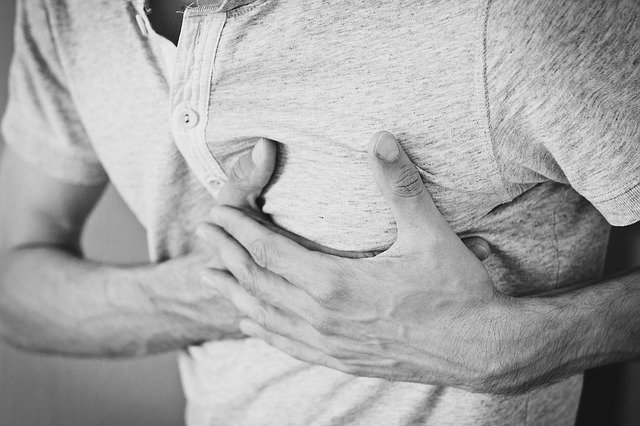
What amount of salt is recommended for infants?
Infants (babies less than one year) should not consume more than 1 gram of salt, whereas the recommended intake for young children increases as they grow. (11)
Why black salt is a better alternative of common salt for preventing certain lifestyle diseases?
It is evident from the scientific studies that excess salt consumption increases the risk of getting blood pressure, leading to cardiovascular disease, gastric cancer, osteoporosis, cataracts, kidney stones, and diabetes. So, for all of us, it is judicious to reduce our salt and/or sodium intake.
The World Health Organization (WHO) strongly recommended reducing the salt intake of the people to decrease the number of deaths from hypertension, cardiovascular disease, and stroke.
Suffering from high blood pressure (hypertension) for a long time is a major cause of cardiovascular disease, responsible for 62% of strokes and 49% of coronary heart disease. There is overwhelming evidence that dietary salt is a major cause of raised blood pressure, and a modest reduction in salt intake lowers blood pressure, and in term reduces the risk of cardiovascular diseases. So, guys, it is clear now that reduction in daily salt and/or sodium intake is essential for all of us for getting a log and healthy life.
The sodium content of black salt is comparatively lower than the common salt. The sodium content of common salt (sodium chloride) is 390 mg sodium per gram whereas that of Black salt is 378.3 mg sodium per gram. So replacing the common salt in our kitchen with black salt help to reduce our daily intake of sodium and in term, help to reduce the risk of many serious diseases.
What type of salt should be used in regular cooking?
Commonly used table salt is pure sodium chloride (NaCl) whereas black salt is a natural salt, containing principally sodium chloride along with traces of other salts. Black salt contains sulfurous compounds that are responsible for the characteristic color, smell, and taste of the black salt. Black salt contains comparative lesser amount of sodium which makes it suitable for hypertensive individuals. Black salt contains traces of fluorine but a negligible amount of iodine. So it is better to partially substitute common salt with black salt. Mixing of 1Kg of common salt to the 1Kg of black salt, and using it for our regular cooking is the best option for maintaining optimum health. (12) (13) (14) (15)
How excess salt intake increases blood pressure?
Kidneys maintain a delicate balance between sodium and potassium. It also maintains the water balance of the body. A high salt intake raises the amount of sodium in the bloodstream and distorts this delicate balance, thereby reducing the ability of the kidneys to remove the water. This causes fluid retention which increases the pressure exerted by the blood against blood vessel walls, causing high blood pressure (hypertension).
What are the benefits of reducing daily salt intake?
The reduction in daily salt intake significantly reduces the blood pressure, both systolic and diastolic blood pressure in men and women.A salt-restricted diet greatly reduces the risk of heart disease and stroke, heart attacks, and heart failure.The greater the reduction in salt intake, the fall in blood pressure is more.Reducing salt is one of the quickest and the most cost-effective intervention to reduce blood pressure among hypertensive individuals. This can be achieved by simple changes, such as consuming less processed foods and checking product labels before purchase. (16) (17)
What type of food contains a high amount of salt and/ or sodium?
Not only the salty foods, those processed foods do not taste salty, may also sometimes contain excess sodium chloride. Breakfast cereals are good examples, which are not salty but contain a substantial amount of salt.
Foods with only moderate amounts of sodium, such as bread, can be a major source of salt in our diets if we eat so much of them.
The majority of sodium in our diets comes from packaged and restaurant food (not the salt shaker) and is a direct result of food processing. Even foods that may not taste salty can be major sources of sodium. Foods with only moderate amounts of sodium, such as bread, can be major sources in our diets because we eat so much of them.
All types of processed foods contain too much salt. For instance, one fresh tomato (whole) provides the only 6mg of sodium but half (1/2) cup canned tomatoes (no salt added) supplies 20mg of sodium whereas half (1/2) cup canned tomatoes (with added salt) provides as much as 220mg of sodium. So, guys please avoid all types of processed foods and enjoy the seasonally available, fresh fruits and vegetables.
Restaurant foods contain a high amount of salt in our diet. Frequency of taking foods outside the home should be reduced as much as possible. Whenever they are taken, they should be taken in less amount. (18) (19)
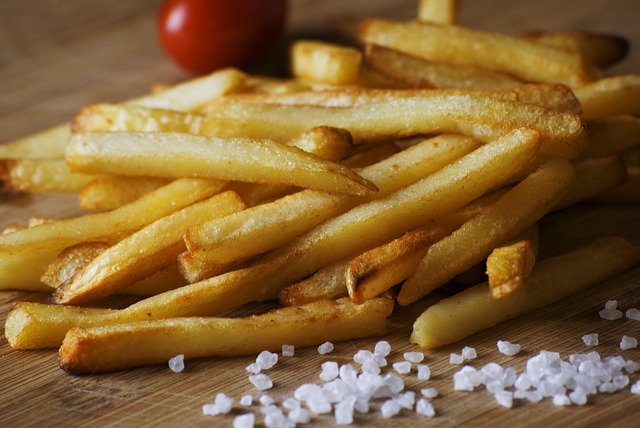
What are the processed foods containing a high amount of salt?
Fresh fruits and vegetables and freshly slaughtered meat and poultry and fresh fish contain little amount of salt (sodium chloride) along with other minerals. But the processing of these foods and subsequent preservation causes loss of certain minerals but the addition of salt which greatly increases the sodium content of foods.
Table-1: List of processed foods containing a high amount of salt
| Type of Processed Foods | Examples |
| Processed animal foods |
|
| Processed dairy foods |
|
| Processed cereals foods |
|
| Processed nuts |
|
| Soups |
|
| Fats, Sauces and seasonings |
|
| Desserts and Sweets |
|
How can I reduce my dietary salt intake?
We can reduce our daily salt intake by simply following the certain basic rules like-
- Habituate the children with low salt intake from early childhood.
- Reduce the consumption of processed foods.
- Eat more seasonal fruits and vegetables instead of their preserved counterparts.
- Reduce the frequency of eating out.
- Reduce the use of salt in your daily cooking.
- Eat smaller portions of salty foods.
- Discover reduced or no-sodium alternatives.
- Partially substitute use of common salt with black salt.
- You should choose the low sodium alternative instead of high sodium foods.
- You should use the natural flavoring agents and taste enhancers to make your recipes more tasteful without adding extra salt.

